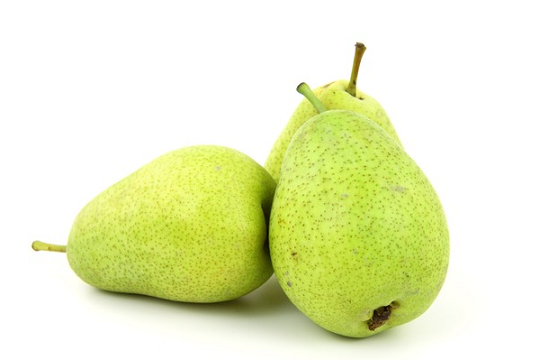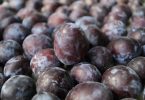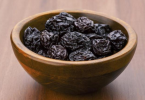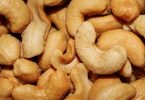Today’s question: can dogs eat pears? Are pears good or bad for dogs? Scroll down for detailed answers.
Have you ever wondered if fruits are suitable for dogs? We know that dogs eat meat and they love bones but if you are a dog owner, you’ll surely be aware of the fact that dogs will eat pretty much anything. Fruits, vegetables, meat products, dairy, as long as they find it tasty, they will certainly eat it. However, you have to be aware of the fact that not all food products are beneficial for your dog. Dogs may be able to eat fruits, but not every type of fruit. Can dogs eat pears? Read on and find out!
What Fruits are Good for Your Dog
Yes, dogs not only are allowed to consume fruits but they might actually love them. Their reason is as good as ours: fruits are tasty and they make a nice alternative to their usual meals. But what fruits are recommended for your pooch? Apples, bananas, oranges, raspberries, blueberries, strawberries, watermelon, pineapples are all very good and very beneficial to your dog’s health.
Aside from being natural candy that will satisfy cravings for sweets, they also won’t rot the teeth. These fruits have a high content of vitamins and nutrients that your dog requires in order to thrive.
What Fruits to Watch Out for?
Remember, just because your canine friend is allowed to have certain fruits, it doesn’t mean that he/she can freely consume any kind. There are plenty of types that are not only forbidden, but they can be downright toxic to your pet and should be avoided at all costs, or at least handled with caution. Mango and cherry pits are not recommended for dogs, they are very toxic. However, as long as your remove the pits and the mango skin, your dog can have a piece or two of these. Just don’t make a regular habit out of it.
Peaches and plums, however, along with any fruit with a hard pit are strictly forbidden. The pit of a peach contains cyanide, which is a substance deadly for pets. Besides that, the pit of a peach is large enough that it can block the intestines, which is also dangerous. Not to mention that it represents a real choking hazard.
Can Dogs Eat Pears?
What about pears? Where do they stand? The good news is that dogs are allowed to eat pears. They make tasty and juicy treats that give your pet a break from their usual kibble. These fruits have the added benefit of being extremely healthy. Vitamins K and C are both found in pears, as well as copper. Copper helps the body build connective tissue, bone, and collagen. It helps dogs absorb iron more effectively too! Most dog foods today are actually supplemented with copper because it’s vital for their overall health, but you can give your pooch copper naturally just by feeding them pears.
Benefits of Pears
One single pear can provide more than 10 percent of the necessary daily intake from these nutrients. In addition, pears have a strong antioxidant effect that protects your dog’s cells, reduces the consequences of aging and the cancer risk.
Pears are also a rich source of Vitamin A, which is good for helping your dog build more body tissue. One of the signs your dog may be suffering from a vitamin A deficiency is the presence of a dull coat and flaky, itchy dog skin. Instead of taking your pooch to the vet or spending on medications, you may want to consider feeding him/her some pears first. Aside from being good for the skin and hair, Vitamin A is an important nutrient that your pup needs to keep his/her organs functioning at optimal level while fighting disease. Pears also have Vitamin E, which is also important in supporting healthy skin in dogs. Vitamin E has many other significant contributions to canine health, such as boosting their immune system, increased antioxidant activity, prevention of cancer, maintains the elasticity of muscles and skin, and reduces any loss of mobility in your dog’s joints.
The rich Vitamin C content found in pears will also do wonders for your dog. Just like for humans, Vitamin C is touted as an essential vitamin that helps us live longer lives. Vitamin C is especially useful when taken during periods of stress or sickness because this vitamin depletes fast in dogs when they aren’t feeling their best. In addition, Vitamin C is also beneficial for active dogs or those with fever. So if you want your pooch to be in top shape at all times, give him some vitamin C by adding pears to his diet.
The phosphorus content in pears is useful for good puppy health. In fact your canine companion needs enough phosphorus for survival; it’s an essential nutrient for dog health. Most of the phosphorus in their body are found in their teeth and bones; if your dog isn’t getting enough phosphorus it will show in these parts. Aside from dental and bone health, a dog’s cell membranes needs phosphorus to keep cell membranes held together. Other vital functions of phosphorus in dog health include supporting nerve function, better calcium metabolism, and energy transfer and storage.
Pears also have a good amount of potassium, which is needed for proper functioning of nerves, muscles, and enzymes. It’s also important for kidney and heart function, helps the muscles work more effectively, and contributes to improved digestion. Not getting enough potassium can result in dogs suffering from weakness, fatigue, muscle cramps, irregular heartbeat, and stomach problems. This is why potassium is definitely an important mineral for healthy dog life.
Niacin, found in pears, is a kind of B-vitamin that benefits humans as well as other animals including your dog. Consuming niacin will help give your dog a smooth, shiny coat and healthy skin. It also contributes to improved functioning of the overall nervous and gastrointestinal system. Niacin also helps your dog better metabolize his intake of fats, protein, and carbohydrates.
Pears also contain fiber which is an important dietary necessity for dogs. Pears also help lower cholesterol and aid with the heart health. They even help to reduce the risk of stroke. So, it seems that pears are among the healthiest treats that you can give to your canine pet.
Dangers
Pear seeds, pits, the core, and its stem contain cyanide, which is a compound that is toxic to dogs. However, a large amount of seeds need to be eaten (chewed, not swallowed) to create health problems. The safest way to introduce pears into your dog’s diet is to remove these fruit parts, which aside from containing cyanide may also be a choking hazard. If your dog accidentally swallows the pear’s core, it may get stuck in his/her intestinal tract and would usually require surgery as this is the only way of effectively removing them.
The skin of pear fruits isn’t only good for you to eat – it’s also great for dogs since many of the nutrients and vitamins are located there. So you don’t have to worry about peeling the skin off before feeding it to your pooch – let them enjoy the skin and its many health benefits too. But remember to wash the pear well before you give it to your pooch; although the skin is rich in nutrients, its surface may also contain chemical residues.
Introducing Fruits Into Your Dog’s Diet
This goes for any type of food you want to introduce into your pet’s diet, but before you start feeding your furry buddy fruit of any kind, you need to do an allergy test. Since we’re talking about pears, let’s take them as an example. Only give your pooch a small piece of pear at first in order to see whether or not he likes it and if he doesn’t get sick from it. In addition, keep in mind that dogs can have food allergies too, so pay attention to possible signs, like vomiting or diarrhea. As long as your pooch seems to digest it well and like it, you can go ahead and give him/her more of this delicious fruit. However, don’t give your pet too much and not too often. The most ideal and safe way to feed pears as well as other fruits to your pooch especially if it’s your first time is to give 3 slices at a time, instead of the entire fruit all at once.
Moreover, you have to remember to take the seeds out of whatever type of fruit you are feeding your pet. This also applies to pears. Otherwise, the fruit may become a choking hazard or seeds poisonous. That is also one of the reasons why you should chop the fruit into small pieces. It will be easier for the dog to chew it and there would be less of a chance the pear blocking the intestines. Moreover, it would be also easier for your pup to digest it.
Conclusion
In conclusion, pears are actually recommended for your pooch! Tasty and healthy, they make an excellent treat for any canine pet, as long as they’re not offered on a daily basis. Generally speaking, fruits offer a wide range of important nutrients and vitamins that will keep your dog healthy, although keep in mind that your dog is first and foremost a meat eater. It’s safe to say that you can put fruits secondary to meat when it comes to planning his/her meals, since it is meat that gives your pooch the energy and protein that he needs for fuel. If you remember that moderation is the key when it comes to your dog’s diet, then you’ll certainly have a healthy and happy furry companion.
Related articles:
References:
http://www.candogseat-this.com/can-dogs-eat-pears/
http://www.dogster.com/lifestyle/can-dogs-eat-fruit-and-grapes-raisins-dog-health
http://www.dogchannel.com/dog-food/fruits-for-dogs.aspx
http://hounddogsdrule.com/k9-classroom/dangerous-foods-toxic-substances/








Leave a Comment